By combining the healing touch of massage with the therapeutic benefits of essential oils, aromatherapy massage creates an experience that promotes deep relaxation and overall well-being.
There are various ways in which aromatherapy massage can be performed. It can involve diffusing essential oils in the room or adding a few drops directly to the massage lotion. Whichever method is chosen, you’ll find yourself enveloped in a fragrant cloud that uplifts your mood and enhances the therapeutic effects of the massage.
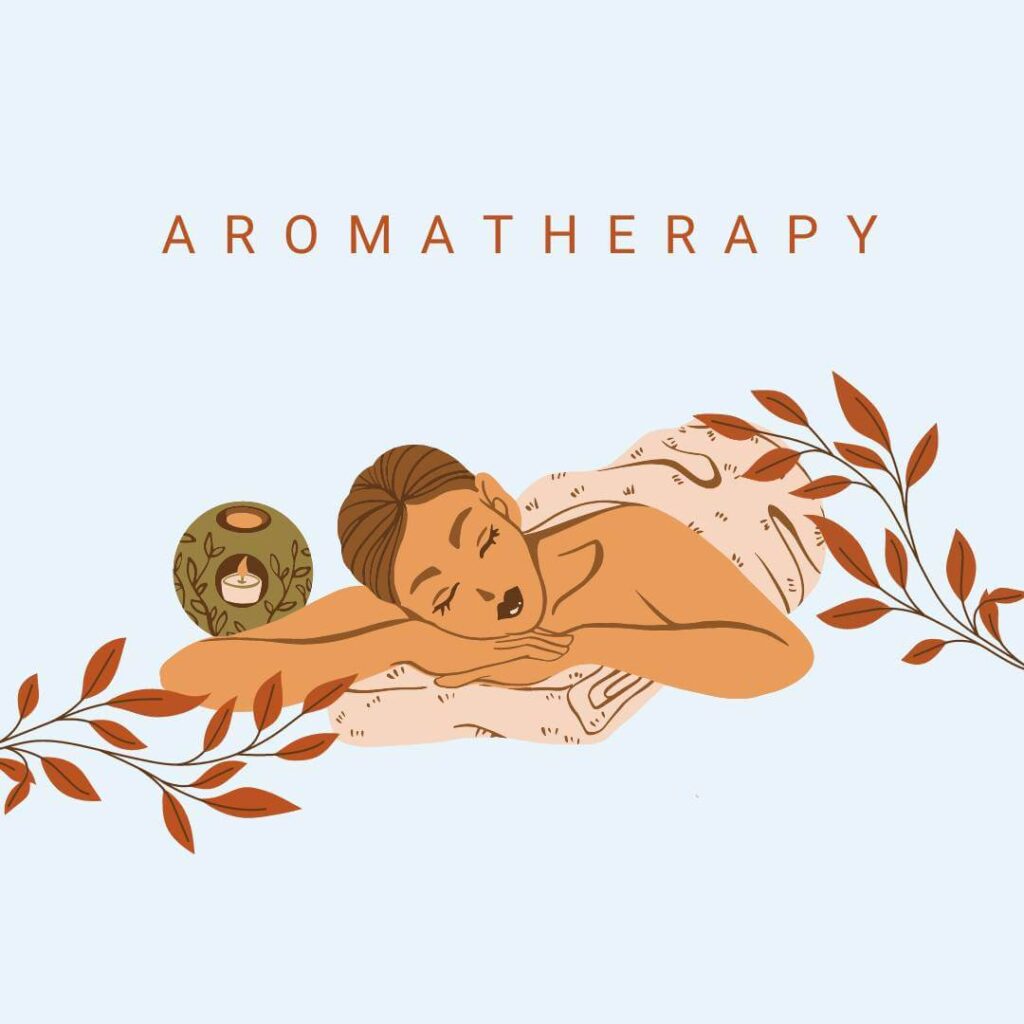
Benefits of Aromatherapy Massage
Aromatherapy massage harnesses the power of scent to enhance your massage experience. By incorporating carefully selected essential oils, this specialized technique can be customized based on your individual needs and preferences. Whether it’s lavender to induce calmness or eucalyptus to invigorate your senses, each oil offers its own set of benefits.
Reduces stress and anxiety levels
Aromatherapy massage is well-known for its ability to reduce stress and anxiety levels. The combination of soothing massage techniques and the inhalation of essential oils creates a calming effect on both the mind and body. The gentle strokes applied during the massage help release tension in the muscles, while the aromatic scents from the essential oils stimulate the olfactory system, triggering relaxation responses in the brain.
Research shows that certain essential oils, such as lavender and chamomile, have natural sedative properties that can help alleviate feelings of anxiety.
Relieves muscle tension and pain
Aromatherapy also helps soothe sore muscles, reduce inflammation, and improve blood circulation. This can be especially beneficial for individuals who experience chronic muscle pain or stiffness.
During an aromatherapy massage session, the therapist applies gentle pressure on specific areas to relax tense muscles and increase blood flow to those areas, allowing for better oxygenation and nutrient delivery. Certain essential oils like peppermint or eucalyptus have analgesic properties that provide temporary relief from pain when absorbed into the skin.
Improves sleep quality and promotes better sleep patterns
If you struggle with insomnia or poor sleep quality, aromatherapy massage may offer some respite. Certain essential oils such as lavender, valerian, and bergamot have been shown to have sedative effects on the body. When these oils are incorporated into an aromatherapy massage, they can help calm the nervous system, reduce racing thoughts, and create a peaceful environment conducive to better sleep.
Enhances mood and uplifts emotions
Aromatherapy massage not only benefits the physical body but also has a positive impact on mental and emotional well-being. Certain essential oils like citrusy bergamot or floral ylang-ylang are known for their uplifting properties. These scents stimulate the brain’s limbic system, which is responsible for regulating emotions.
How Aromatherapy Massage Works and Its Effects on Well-being
Essential oils are absorbed through the skin during massage, entering the bloodstream
Essential oils are highly concentrated plant extracts that contain various beneficial compounds. When applied topically, they penetrate the skin and enter the bloodstream, allowing their healing properties to be distributed throughout the body. Each essential oil has its own unique composition, which determines its specific effects on the mind and body.
For example, lavender essential oil is known for its calming properties and can help reduce anxiety and stress when used during a massage. Peppermint essential oil, on the other hand, has a cooling effect and can provide relief from muscle pain and tension. By selecting specific essential oils based on individual needs, aromatherapy massages can be customized to address various concerns.
Stimulates the release of endorphins, promoting a sense of calmness and relaxation
One of the key benefits of aromatherapy is its ability to stimulate the release of endorphins in the body. Endorphins are natural chemicals produced by our brain that act as painkillers and mood enhancers. As endorphin levels rise in your body, you may experience a reduction in stress levels and an improvement in your overall mood.
The national cancer institute (NCI) reports that scientific studies and clinical trials have found that aromatherapy has benefits on:
- Insomnia
- Depression
- Nausea
- Pain
Anxiety
Risks & Side Effects Of Aromatherapy Massage
Allergic Reactions: Be Mindful of Your Skin
While aromatherapy massage is generally safe and has minimal side effects, it’s important to be aware of potential allergic reactions. Some individuals may experience skin sensitivities or allergies to certain essential oils used during the massage. This can manifest as rashes, hives, redness, swelling, or itchiness on the skin.
Certain citrus-based essential oils like bergamot can increase sensitivity to sunlight. It is advisable to avoid sun exposure after applying these oils topically to prevent potential skin damage. Learn how to use essential oils on skin in our guide.
Precautions for Pregnant Women and Certain Medical Conditions
Aromatherapy massage is not recommended for pregnant women due to the potential risks associated with some essential oils. Certain oils can stimulate uterine contractions and may pose a danger during pregnancy. It’s best to consult with your healthcare provider beforehand.
People with asthma or other respiratory conditions may find certain scents overwhelming or irritating to their airways. Those with sensitive skin or open wounds should also take precautions as some essential oils could cause further irritation.
To ensure your safety and well-being, always communicate openly with your massage therapist about any existing medical conditions or concerns you may have before starting a massage session.
Proper Dilution Is Key
When using essential oils during a massage therapy at home, it’s crucial that they are properly diluted before applying them directly onto the skin. Undiluted essential oils can be too potent and may lead to skin irritation or even chemical burns in some cases.
Massage therapists are trained to dilute essential oils with carrier oils, such as sweet almond oil or jojoba oil, to ensure safe application. These carrier oils help reduce the concentration of the essential oil while still allowing its therapeutic properties to be effective.
Aromatherapy Massage Tips
Diffuse or Apply Essential Oils?
Deciding whether to diffuse the essential oils or apply them directly to your skin is an important consideration for aromatherapy. Diffusing the oils can create a soothing ambiance in the room, allowing you to breathe in their aromatic benefits throughout the session. On the other hand, applying diluted essential oils on your skin can provide direct absorption and potential therapeutic effects.
Communicate Your Preferences and Health Concerns
Whether you prefer a certain scent or have sensitive skin, open communication ensures that you get the most out of your massage while avoiding any potential discomfort.
Experiment with Different Essential Oils
One of the joys of aromatherapy is experimenting with different essential oils. Each oil has its own unique scent and potential benefits. Take some time to explore various scents and find what works best for you.
Take Deep Breaths and Immerse Yourself
During your aromatherapy massage, remember to take deep breaths to fully immerse yourself in the experience. Inhaling the pleasant scents of the essential oils can enhance relaxation and promote a sense of well-being. Focus on your breath as you receive the massage, allowing yourself to let go of any tension or stress.
By engaging in deep breathing exercises, you can maximize the benefits of aromatherapy during your massage session. Breathe in slowly through your nose, allowing the scent to fill your lungs, and exhale deeply through your mouth.
Create a Calming Ambiance At Home Using Essential Oil Diffusers
While professional spa settings offer an ideal environment, you can also enjoy this blissful experience in the comfort of your own home. Investing in an essential oil diffuser is an excellent way to fill your space with soothing scents that enhance relaxation.
Frequently Asked Question
How often should I get an aromatherapy massage?
The frequency of aromatherapy depends on your personal needs and preferences. Some people enjoy getting one every week for ongoing relaxation and stress relief, while others may opt for a monthly session as part of their self-care routine.
Are there any side effects of aromatherapy massage?
When done correctly by a trained professional using high-quality essential oils, side effects are rare. However, some individuals may experience skin irritation or allergic reactions to certain oils. It’s important to inform your therapist about any allergies or sensitivities beforehand.
Is there anything I need to do after an aromatherapy massage?
After an massage therapy session, it’s recommended to take some time to rest and allow the benefits of the massage to fully sink in. Drink plenty of water to stay hydrated, avoid strenuous activities for a few hours, and listen to your body’s needs for relaxation and self-care.
How long does an aromatherapy massage session typically last?
The duration of a massage therapy session can vary depending on the spa or therapist you choose. On average, sessions range from 60 to 90 minutes, allowing ample time for you to unwind and experience the therapeutic benefits of the essential oils.
References
https://www.cancer.gov/about-cancer/treatment/cam/patient/aromatherapy-pdq
https://pubmed.ncbi.nlm.nih.gov/10659113/
You May Also Like
- Best Red Light Therapy Device 2024 for Pain Management – 16 October 2024
- How To Improve Gut Microbiome – 26 May 2024
- Chemo neuropathy treatment: What to do? – 19 May 2024

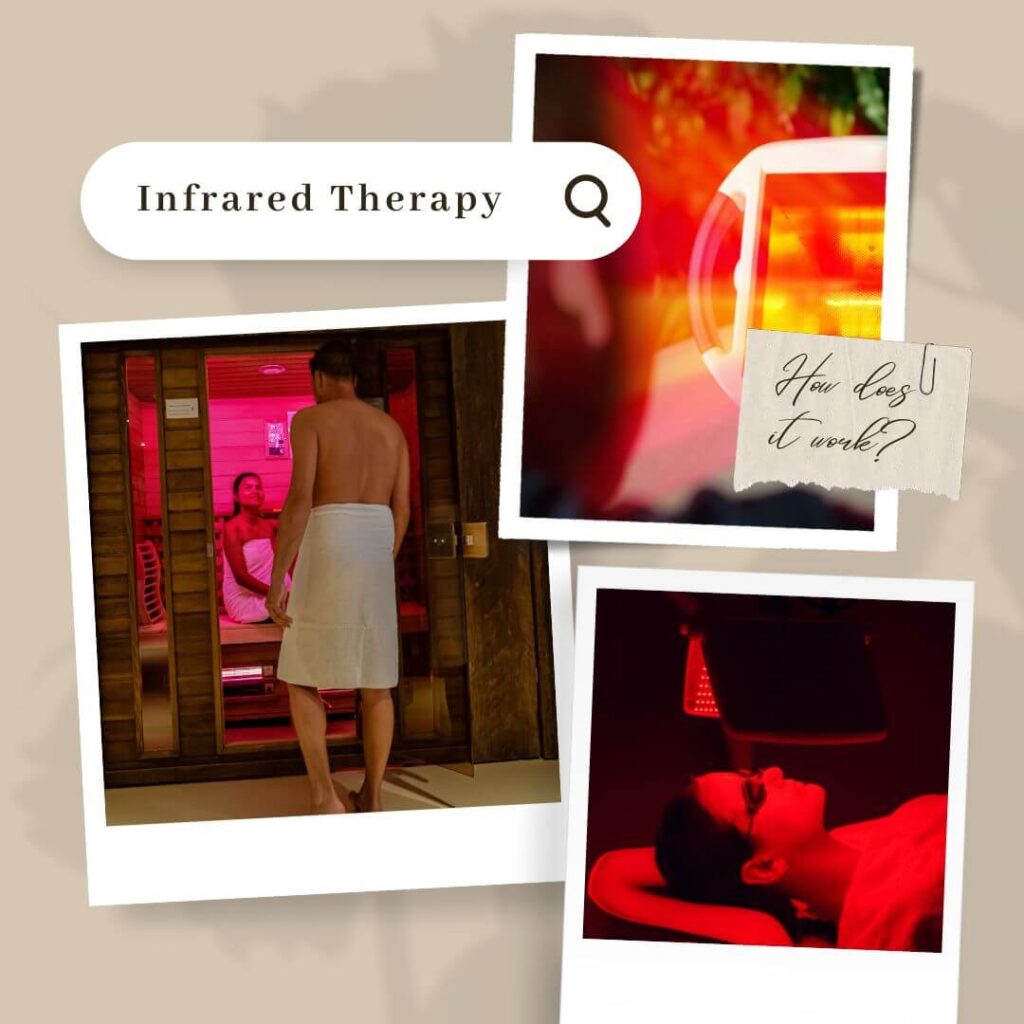
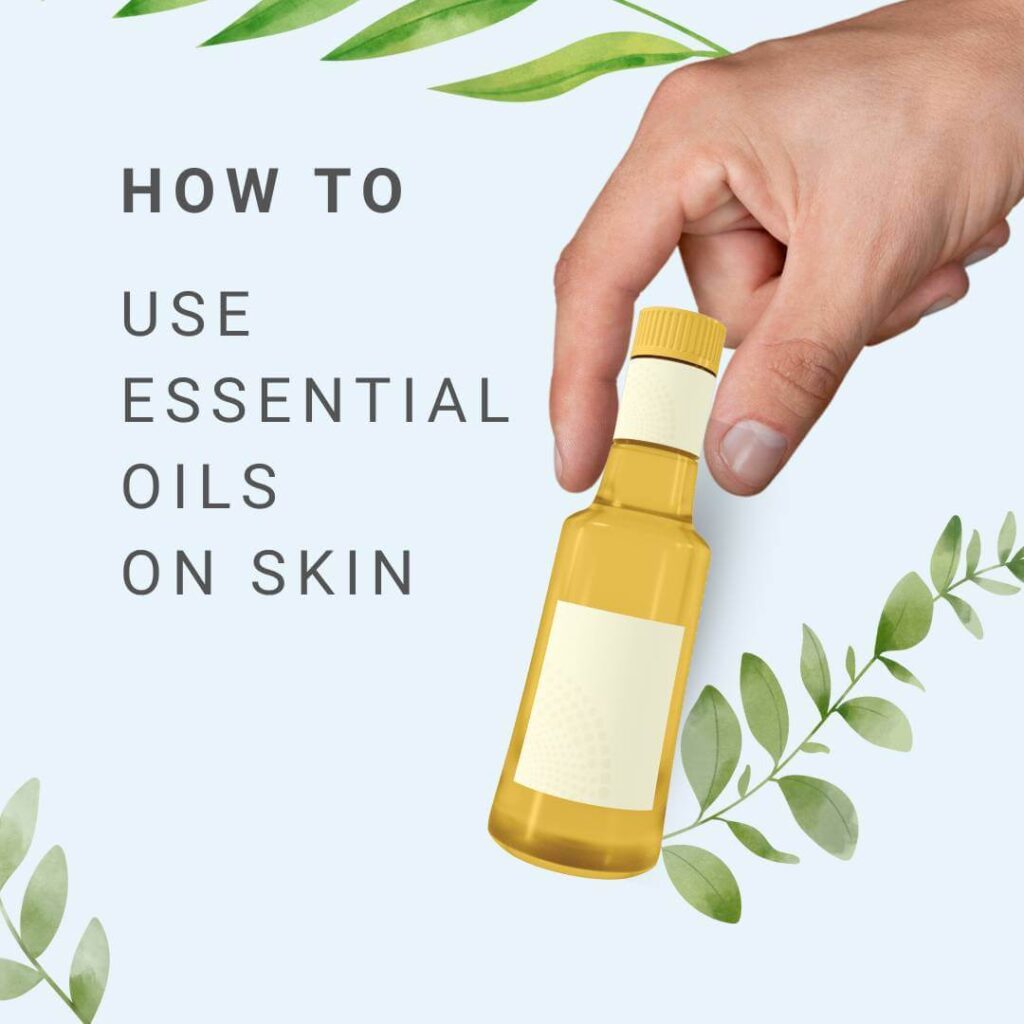
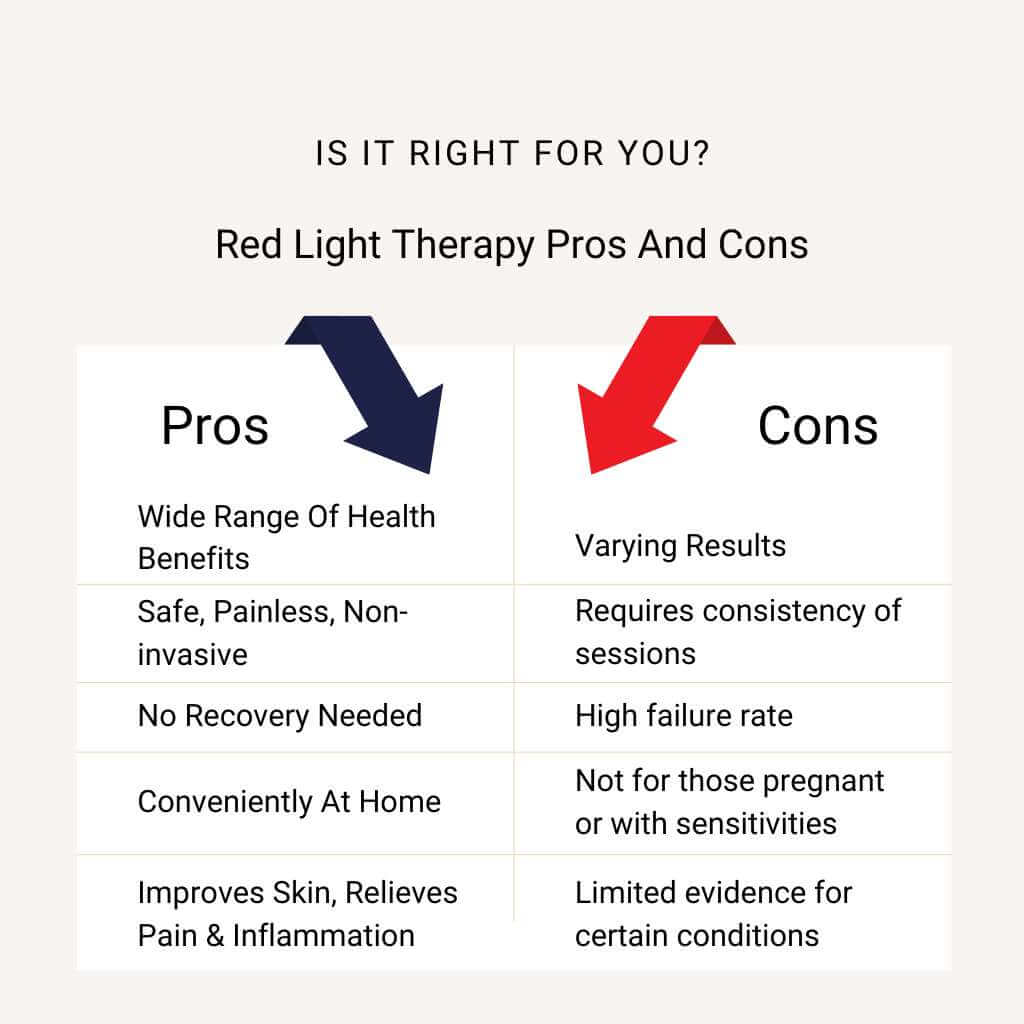


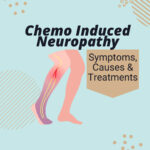


One response
[…] Aromatherapy Massage: Benefits, Risks & More26 August 2023 […]